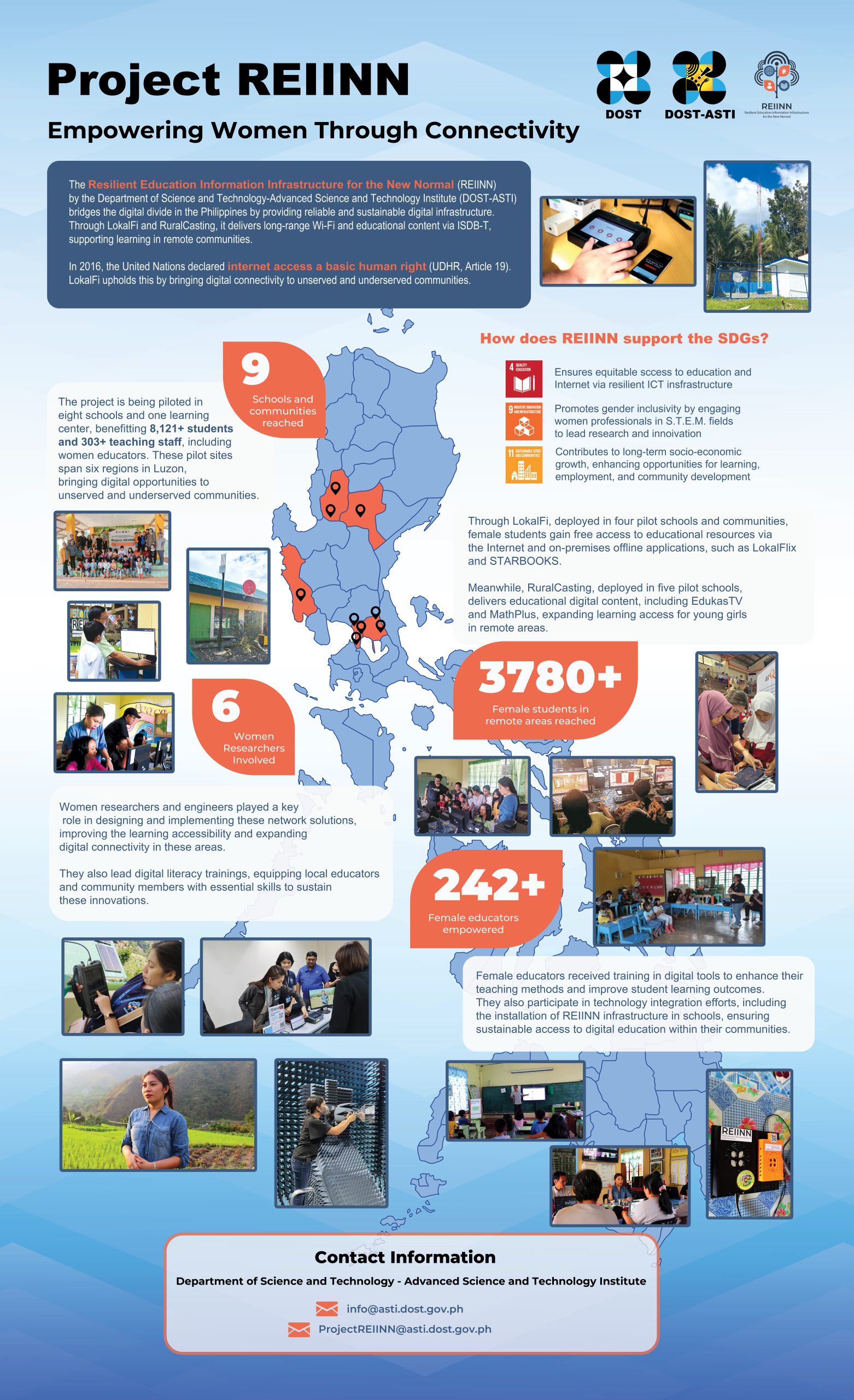Bridging the Digital Divide: REIINN Empowers Women and Communities Through Inclusive Connectivity
In the Philippines, the digital divide continues to limit access to learning opportunities, particularly in geographically isolated and disadvantaged areas (GIDA), where basic ICT infrastructure is lacking. For many schools in these communities, internet connectivity and digital resources remain out of reach, making it difficult for students and educators to participate in the evolving education landscape.
These challenges became more apparent during the COVID-19 pandemic when online learning became a necessity. To bridge this gap, the DOST-Advanced Science and Technology Institute launched the Resilient Education Information Infrastructure in the New Normal (REIINN) Project in 2021.
The project was developed to provide sustainable ICT infrastructure to schools in hard-to-reach communities, enabling access to the internet and digital learning resources through cost-effective and community-centered network solutions.
REIINN’s technology demonstrators – LokalFi and RuralCasting – equip schools and communities with access to educational content either through the internet or via localized, offline platforms. LokalFi is a locally deployed Wi-Fi network that delivers on-premises applications, while RuralCasting leverages digital TV’s data broadcasting capabilities to deliver educational programs to remote communities using set-top boxes.
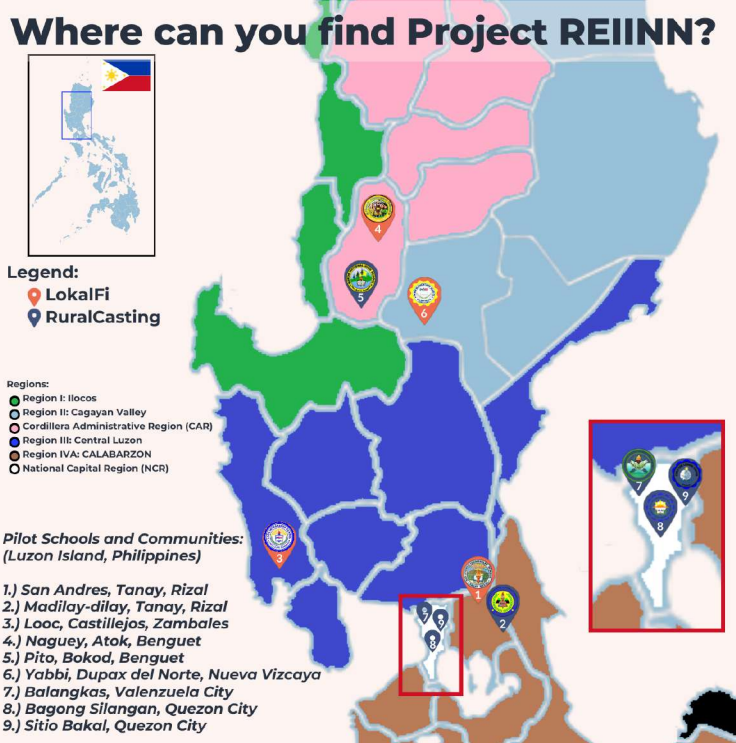 Location of REINN pilot sites in the Philippines
Location of REINN pilot sites in the Philippines
Empowering Women and Girls in Education
At its core, REIINN aims to promote inclusive development. To date, the project is being piloted in eight schools and one learning center across five regions in Luzon, directly benefiting more than 3,780 female students and 242 female educators.
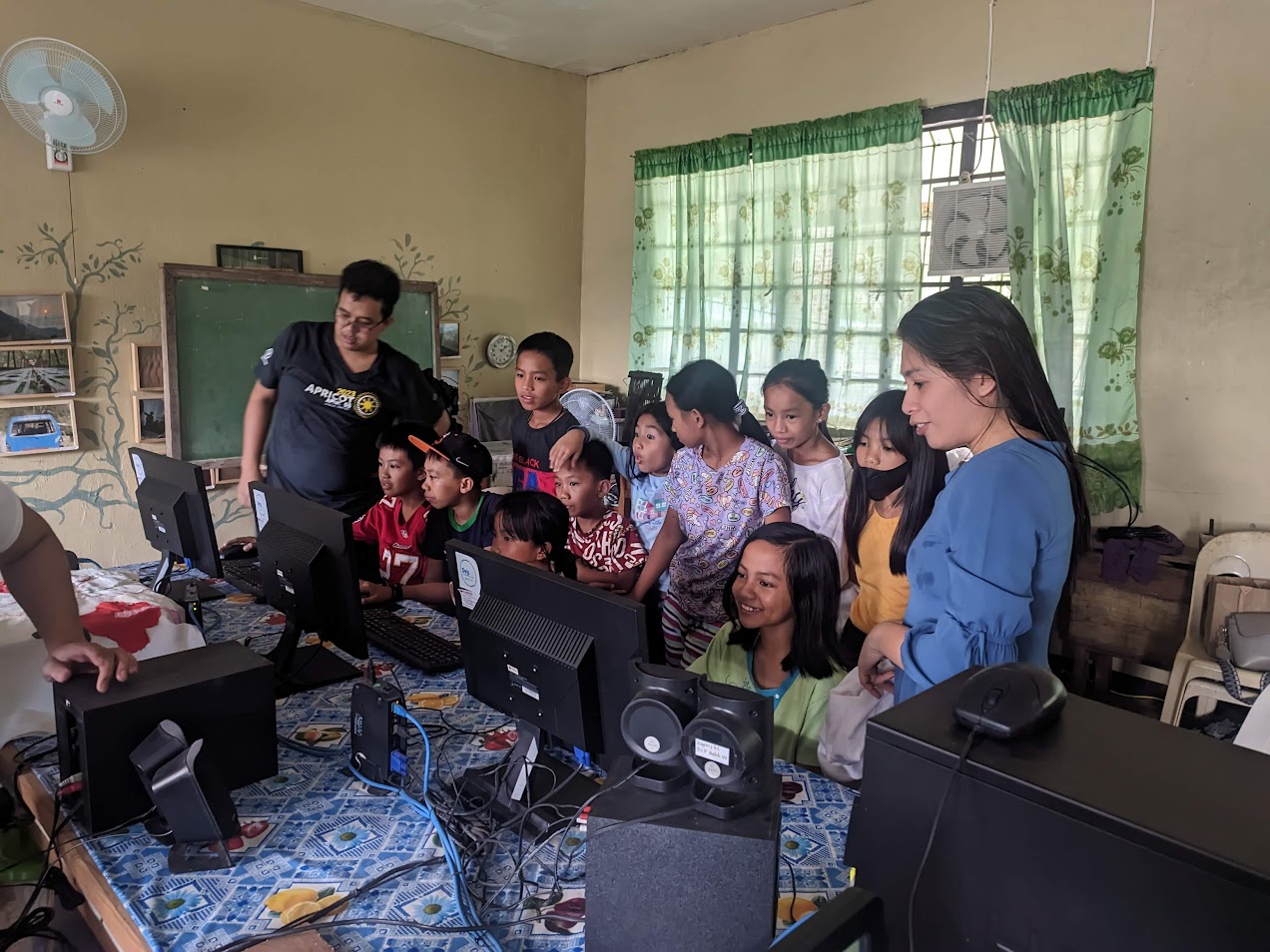 Students of Naguey Elementary School access educational content through LokalFi, under the guidance of REIINN staff during one of the project’s on-site activities.
Students of Naguey Elementary School access educational content through LokalFi, under the guidance of REIINN staff during one of the project’s on-site activities.
Beyond improving access to ICT infrastructure, the project offers digital skills training to help teachers effectively use and manage these technologies. This has been particularly empowering for many women educators, who have stepped up as technology champions within their schools and communities.
"Prioritizing women and girls in efforts to close the digital divide is essential to ensure equal access to opportunities and empower women to lead the way in transforming their communities,” said Engr. Riza Carmela M. Pineda, REIINN LokalFi Technical Lead.
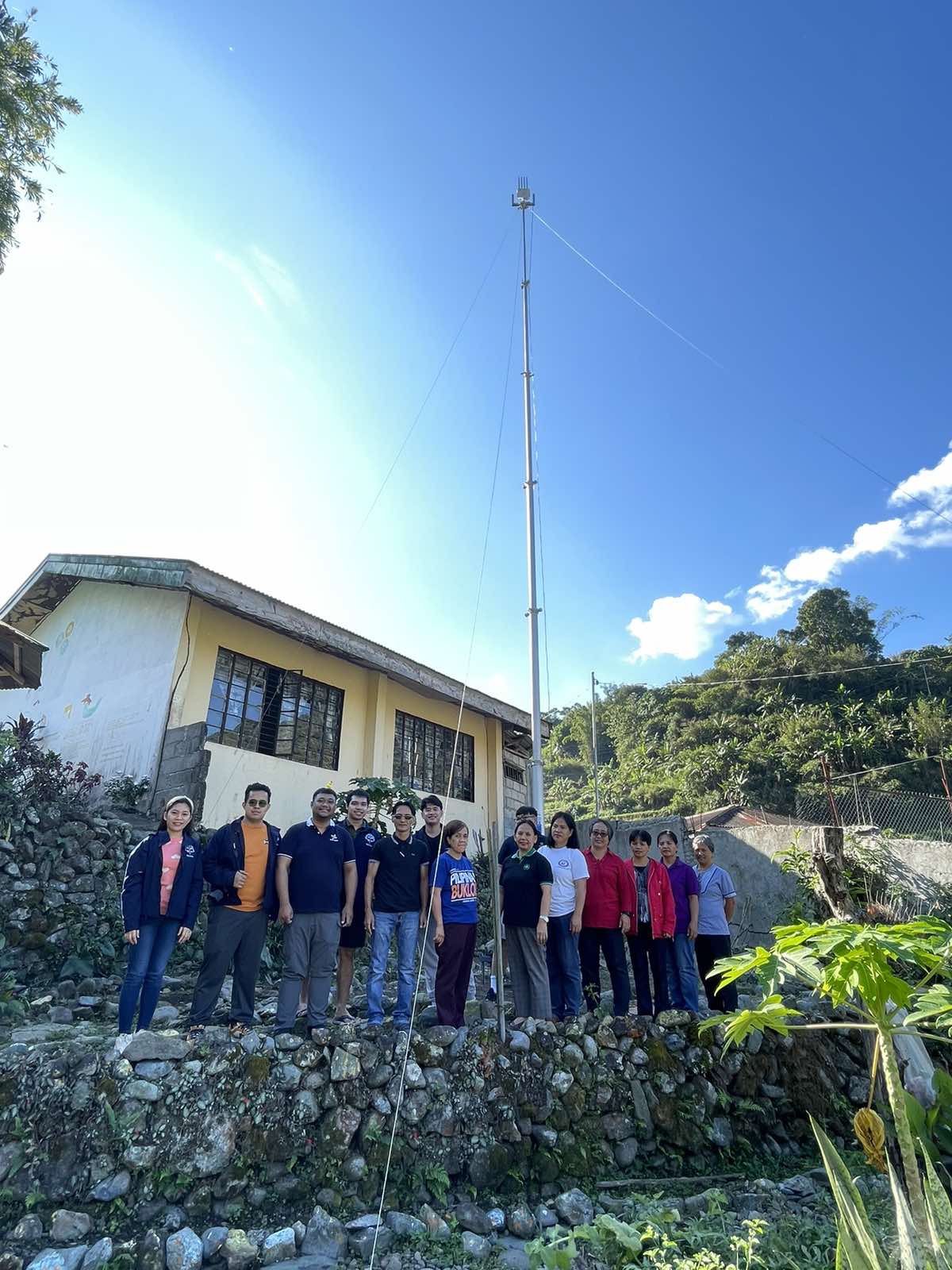
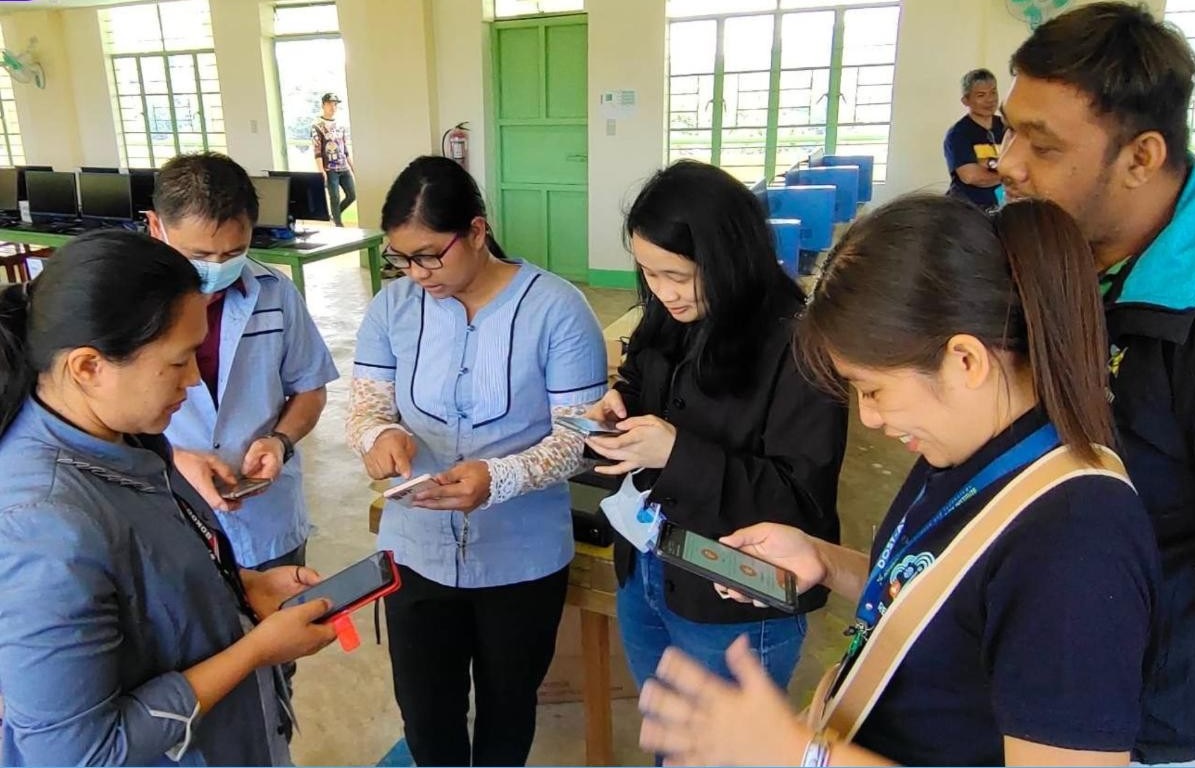
Project REIINN conducted information, education, and communication (IEC) activities and technology deployments in schools and communities in Naguey, Atok Benguet and Madilay-dilay, Tanay Rizal.
REIINN also draws strength from the women behind its implementation. Women engineers, researchers and staff played key roles in developing and deploying the project’s core technologies.
Showcasing Local Impact on the Global Stage
This year, REIINN was selected to represent DOST and the Philippines at the Women in Science, Technology, and Innovation (STI) for Sustainable and Inclusive Development exhibition, held during the 28th Session of the United Nations Commission on Science and Technology for Development (CSTD) in Geneva, Switzerland.
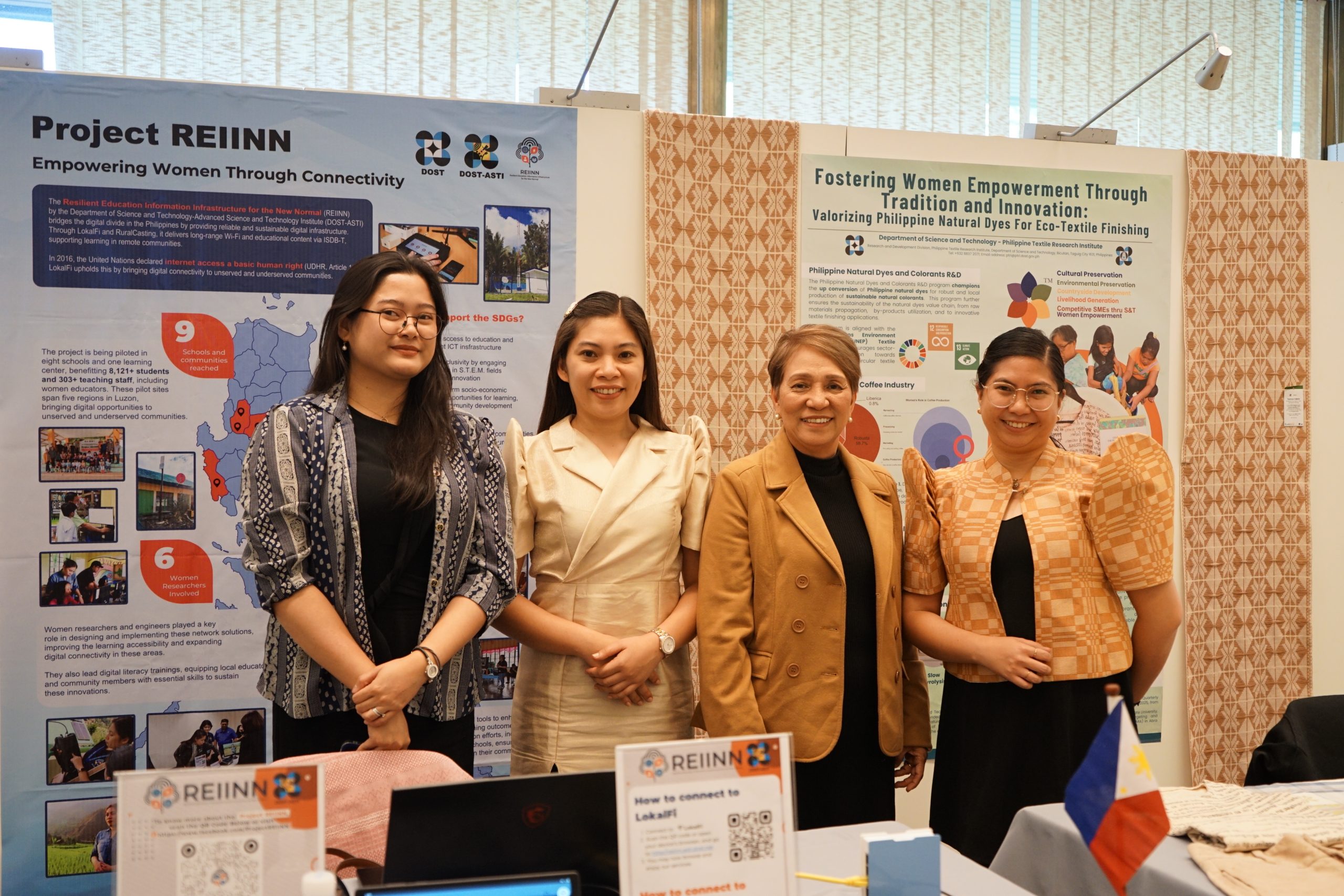 Representing the Philippines at the UN CSTD Women in STI exhibition were (L-R) Ms. Karen Lou M. Ayson (DOST), Engr. Riza Carmela M. Pineda (DOST-ASTI), Dr. Leah J. Buendia (DOST Undersecretary for Research and Development), and Ms. Kimberly P. Viron (DOST-PTRI).
Representing the Philippines at the UN CSTD Women in STI exhibition were (L-R) Ms. Karen Lou M. Ayson (DOST), Engr. Riza Carmela M. Pineda (DOST-ASTI), Dr. Leah J. Buendia (DOST Undersecretary for Research and Development), and Ms. Kimberly P. Viron (DOST-PTRI).
The exhibit featured initiatives from around the world highlighting how women are driving innovation in support of the Sustainable Development Goals. Representing REIINN, Engr. Pineda shared the project’s story, specifically the role of Filipino women in leading and implementing the sustainable network solutions and its impact in bridging the digital divide in GIDAs.
“Seeing how other women in science are leading transformative projects in their respective countries reminded me that our work at DOST-ASTI is part of a larger movement toward inclusive, community-driven innovation,” she shared.
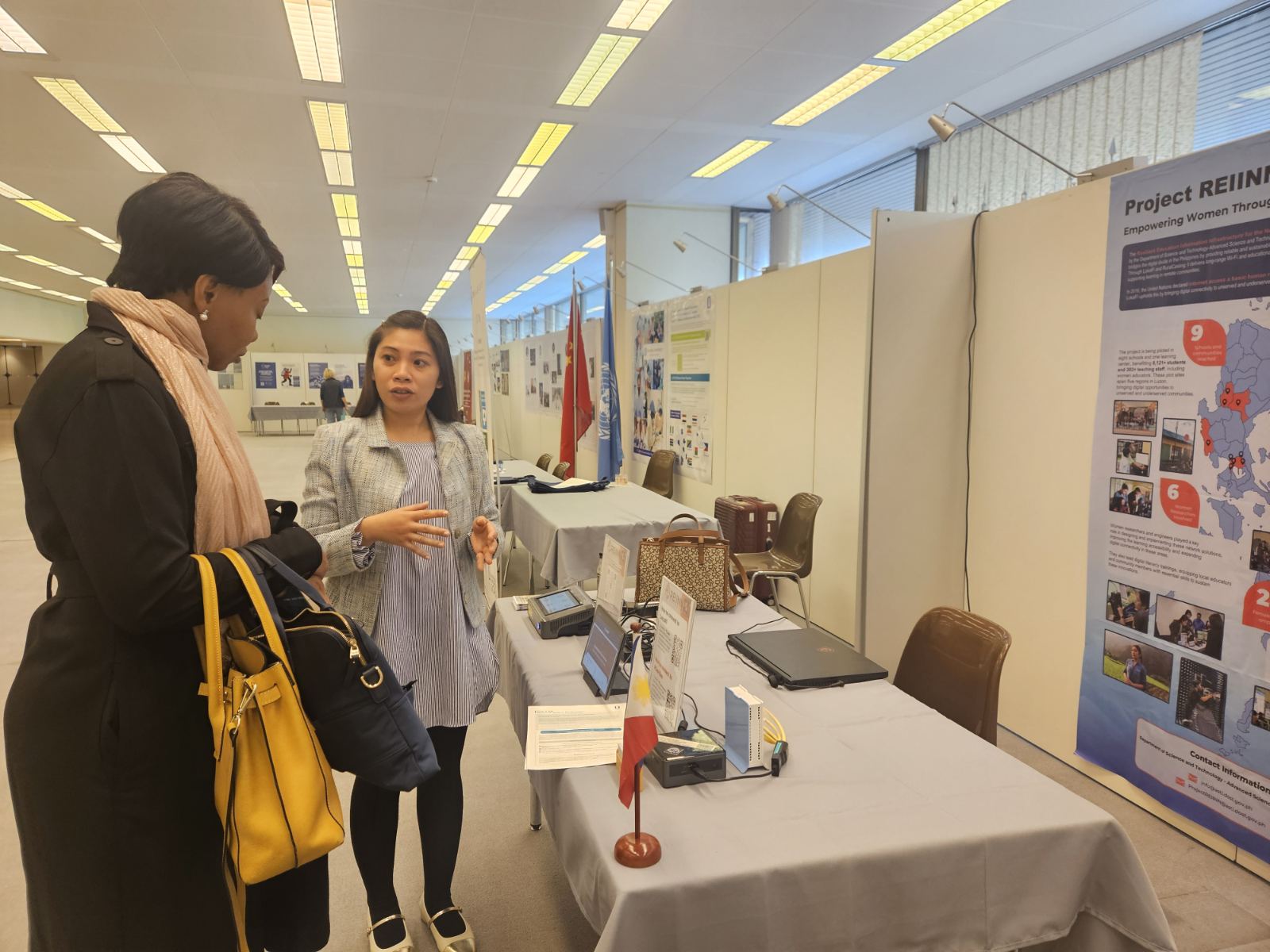 Engr. Pineda shares with an exhibit attendee how Project REIINN and its technologies support efforts to close the digital gap in GIDAs across the Philippines.
Engr. Pineda shares with an exhibit attendee how Project REIINN and its technologies support efforts to close the digital gap in GIDAs across the Philippines.
Expanding reach from Education to DRRM
With the groundwork laid in education, REIINN is now evolving to support another critical sector: disaster risk reduction and management. Through a related initiative REIINNDRROPS, or Resilient Information Infrastructure and Networks: Disaster Risk Reduction through Communication and Community Preparedness Systems, DOST-ASTI is adapting REIINN’s technologies for emergency communication.
REIINNDRROPS builds on the same technologies, focusing on deployable network systems that can provide connectivity and communication support to communities affected by natural disasters. These solutions aim to ensure that local governments and emergency responders can maintain vital communication lines during crises.
As REIINN continues to grow, the project remains rooted in its mission of creating access that empowers. Through the efforts of DOST-ASTI and its partners, a more connected, inclusive, and resilient future is within reach – where no community is left behind.
